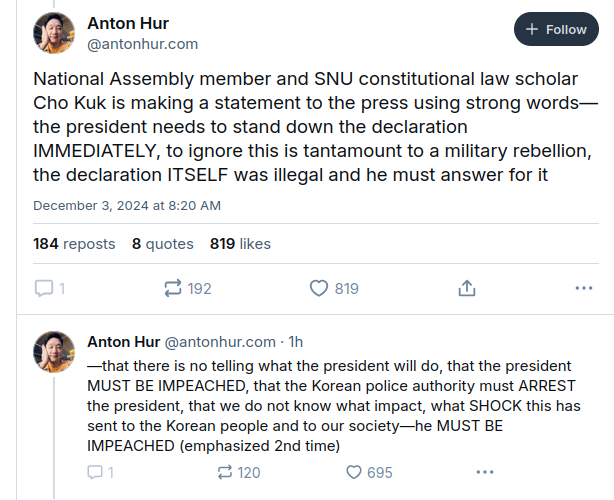
Background
Yoon Suk-yeol is the current President of South Korea, serving since May 2022. On December 3, 2024, he declared martial law in response to perceived threats from the opposition. His presidency has been marked by various controversies and political challenges, including a major defeat for his party in recent elections.
Resolution Criteria
This market will resolve as YES if Yoon Suk-yeol is arrested by law enforcement authorities before January 1, 2026. The arrest must be formally executed with an arrest warrant or through a legitimate legal process under South Korean law.
The market will resolve as NO if:
Yoon is not arrested before January 1, 2026
He is only questioned or investigated without being arrested
He faces impeachment proceedings but is not arrested
He resigns or leaves office without being arrested
Considerations
Sitting presidents in South Korea have constitutional immunity from criminal prosecution except in cases of insurrection or treason
The opposition party does not currently have the two-thirds majority needed for impeachment
The declaration of martial law does not affect the president's constitutional immunity
Previous South Korean presidents have faced legal consequences after leaving office, including arrests and convictions, but this typically occurs after their terms end
Any arrest would likely require either impeachment and removal from office, or charges of insurrection or treason that overcome presidential immunity
[Breaking] Investigative body moves in to arrest Yoon Suk Yeol
Some 50 officials of the Corruption Investigation Office for High-ranking Officials and police combined entered President Yoon Suk Yeol's official residence at around 8:03 a.m. Friday to arrest him on suspicion of insurrection.
Investigators arrive at South Korean president’s residence to carry out arrest warrant
Updated 6:55 PM EST, Thu January 2, 2025
